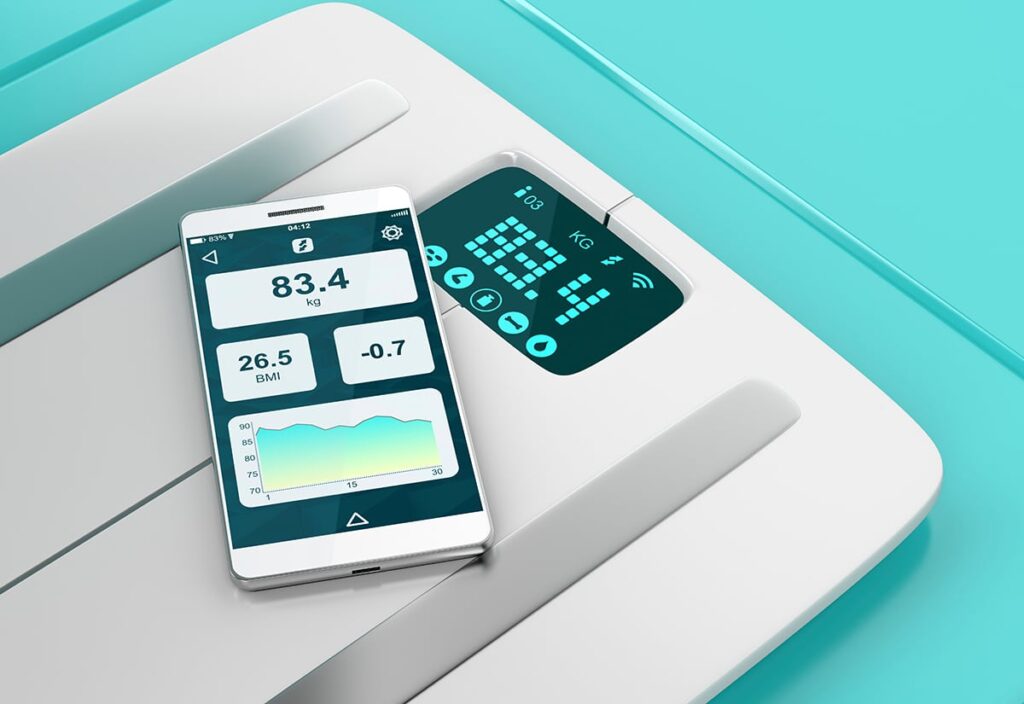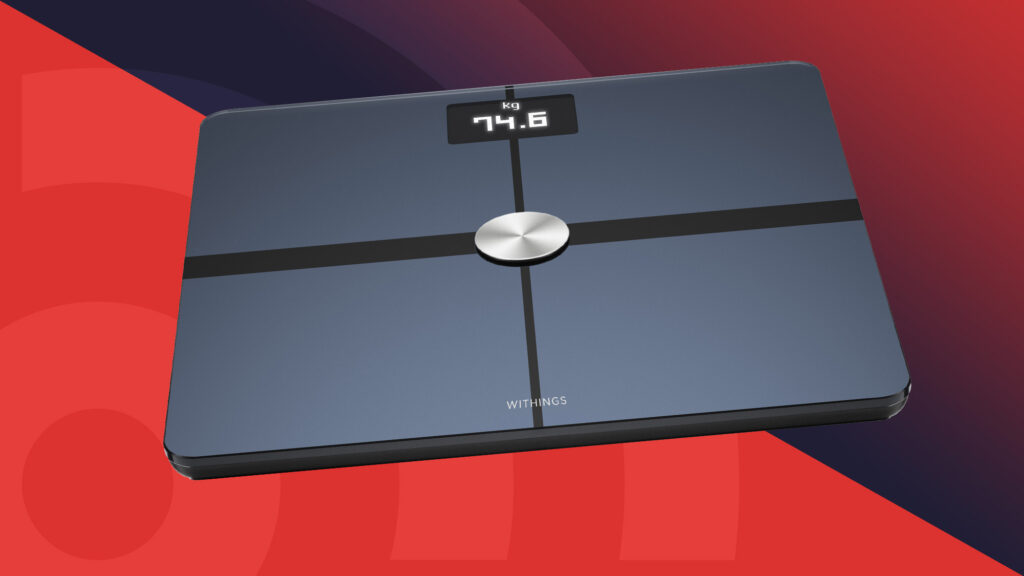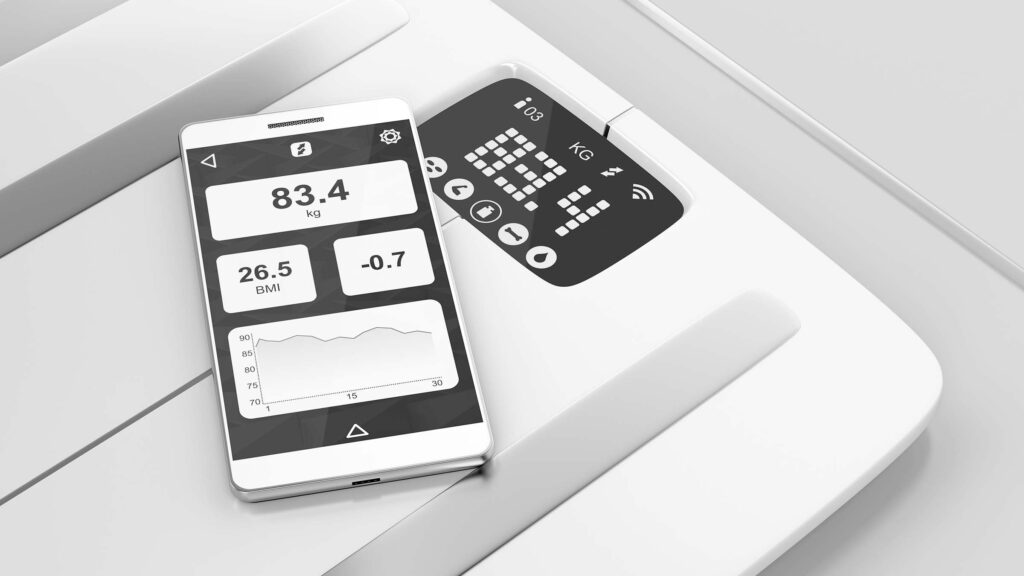Blog
How Smart Scales Help You Track Body Composition
Staying on top of your health and fitness goals often goes beyond tracking your weight. Factors like muscle mass, body fat percentage, and bone density provide a more comprehensive picture of your overall health. Smart scales, equipped with advanced sensors and technology, have become invaluable tools for monitoring body composition, offering insights that traditional scales simply can’t provide.
In this article, we’ll explore how smart scales help you track body composition, their benefits, and how to use them effectively to improve your health journey.
1. What Is Body Composition?
Body composition refers to the breakdown of what your body is made of. It provides a detailed look at the percentages of fat, muscle, bone, and water in your body. Understanding body composition is crucial because weight alone doesn’t distinguish between fat and lean mass.

Key Components of Body Composition:
- Body Fat Percentage: The proportion of your body weight that comes from fat.
- Lean Body Mass: Includes muscles, organs, and bones.
- Bone Density: An indicator of bone strength and overall health.
- Water Percentage: Reflects hydration levels and water retention.
2. What Are Smart Scales?
Smart scales are advanced weighing devices that use technology to measure not only your weight but also various body composition metrics. They often sync with smartphone apps to provide detailed insights and trends over time.
How They Work:
Smart scales use bioelectrical impedance analysis (BIA) to measure body composition. A small electrical signal passes through your body to estimate the resistance of different tissues, allowing the scale to calculate metrics like fat percentage, muscle mass, and water content.
3. Benefits of Using Smart Scales
1. Comprehensive Health Insights
Unlike traditional scales, smart scales give a detailed breakdown of your body composition, helping you understand what’s behind the number on the scale.
- Identify whether weight changes are due to fat loss, muscle gain, or water fluctuations.
- Track progress in fitness and health programs more accurately.
2. Personalized Data and Goals
Smart scales often integrate with apps to provide tailored insights based on your age, gender, and fitness goals.
- Suggests healthy ranges for body fat, BMI, and muscle mass.
- Tracks individual goals, like increasing muscle or reducing fat.
3. Long-Term Progress Tracking
Smart scales sync with apps to log data over time, offering a clear view of your health trends.
- View weekly, monthly, or yearly progress.
- Identify patterns in weight or body composition fluctuations.
4. Motivation and Accountability
Seeing regular data and tracking progress can keep you motivated.
- Gamified features in apps encourage consistency.
- Sharing progress with fitness coaches or friends adds accountability.
5. Family and Multi-User Friendly
Many smart scales support multiple profiles, making them ideal for families.
- Tracks data for different users with individual profiles.
- Automatically recognizes the user based on weight or other metrics.
6. Integration with Health Ecosystems
Smart scales often connect with health apps and devices like fitness trackers.
- Syncs with platforms like Apple Health, Google Fit, and Fitbit.
- Combines data from multiple devices for a holistic health overview.
4. Top Metrics Tracked by Smart Scales

Here’s a breakdown of the key metrics smart scales measure and what they mean:
1. Weight
- The most basic measurement, but in the context of other metrics, it becomes more meaningful.
2. Body Fat Percentage
- Indicates the proportion of your body weight that comes from fat.
- High body fat can increase the risk of chronic diseases, while low body fat may indicate undernourishment or overtraining.
3. Muscle Mass
- Reflects the weight of muscles in your body.
- Helps monitor muscle growth during strength training or weight loss programs.
4. Bone Mass
- Tracks the estimated weight of your bones.
- Useful for understanding bone health, especially as you age.
5. Water Percentage
- Indicates hydration levels and water retention.
- Helps ensure you’re adequately hydrated for optimal bodily functions.
6. Visceral Fat
- Measures fat stored around internal organs.
- High visceral fat levels are linked to health risks like diabetes and heart disease.
7. Basal Metabolic Rate (BMR)
- Estimates the calories your body burns at rest.
- Useful for tailoring diet and exercise plans.
5. Top Smart Scales on the Market
Here’s a look at some of the best smart scales available, each offering unique features:
1. Withings Body+
Features:
- Measures weight, body fat, muscle mass, bone mass, and water percentage.
- Syncs with over 100 health apps, including Apple Health and MyFitnessPal.
- Offers personalized coaching through the Withings app.
Best For:
Comprehensive health tracking with a focus on app integration.
2. Fitbit Aria Air
Features:
- Tracks weight, BMI, and body composition metrics.
- Syncs seamlessly with the Fitbit ecosystem.
- Simple setup and user-friendly interface.
Best For:
Fitbit users looking for easy integration with their fitness trackers.
3. RENPHO Smart Scale
Features:
- Provides 13 body composition metrics, including weight, body fat, and BMR.
- Budget-friendly with robust app compatibility.
- Supports multiple user profiles.
Best For:
Cost-conscious users seeking high functionality.
4. Garmin Index S2
Features:
- Measures weight, body fat, skeletal muscle mass, and visceral fat.
- Syncs with Garmin Connect for in-depth trend analysis.
- Offers weather updates alongside health data.
Best For:
Garmin smartwatch users and athletes.
5. Eufy Smart Scale P2 Pro
Features:
- Tracks 16 body metrics, including lean body mass and protein levels.
- Provides a body shape index for detailed insights.
- Affordable and sleek design.
Best For:
Individuals wanting detailed body composition metrics on a budget.
6. How to Use Smart Scales Effectively
1. Use Consistently:
- Weigh yourself at the same time each day, preferably in the morning before eating or drinking.
2. Ensure Proper Placement:
- Place the scale on a hard, flat surface to ensure accurate readings.
3. Monitor Trends, Not Daily Changes:
- Focus on long-term trends rather than day-to-day fluctuations, which can be influenced by hydration or diet.
4. Pair with a Health App:
- Use the app to set goals, track trends, and gain deeper insights.
5. Combine with Other Data:
- Integrate with fitness trackers and nutrition apps for a comprehensive health overview.
7. Limitations of Smart Scales
While smart scales are highly effective, it’s important to understand their limitations:
1. Accuracy Variations:
- BIA technology can be influenced by factors like hydration, meal timing, or exercise.
2. Limited Medical Diagnosis:
- These devices are not substitutes for professional medical evaluations.
3. Dependency on Technology:
- Users may need a smartphone or internet connection to access full features.
8. The Future of Smart Scales
As technology evolves, smart scales are expected to offer even more advanced features:
1. AI-Driven Insights:
- Personalized recommendations based on user data.
2. Enhanced Integration:
- Seamless syncing with smart home ecosystems.
3. Medical-Grade Accuracy:
- Improved sensors for near-clinical accuracy.
4. Expanded Metrics:
- New health indicators like metabolic age and stress levels.
Conclusion
Smart scales are transforming the way we approach health and fitness by offering detailed insights into body composition. From tracking body fat percentage to monitoring muscle mass and hydration, these devices empower users to make informed decisions about their health.
Whether you’re a fitness enthusiast, someone on a weight loss journey, or just looking to stay informed about your body, investing in a smart scale can provide the tools you need to achieve your goals. Explore the options available, integrate them into your routine, and take the first step toward a healthier, more informed lifestyle today!

